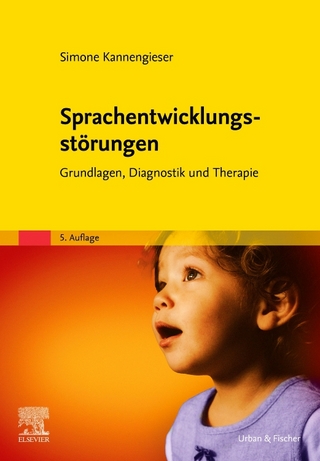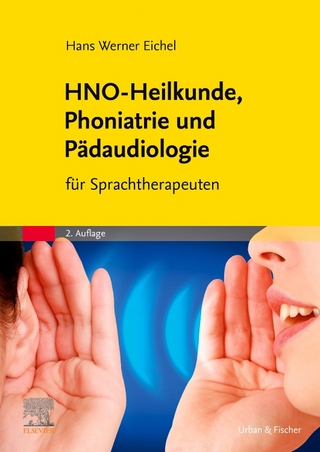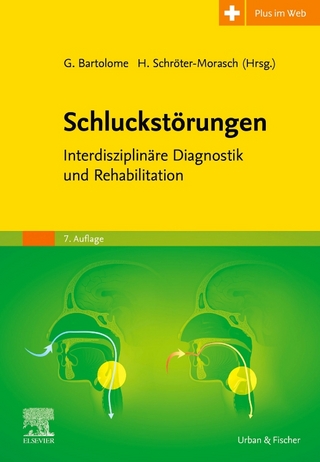
Discourse Analysis in Adults With and Without Communication Disorders
Plural Publishing Inc (Verlag)
978-1-63550-375-3 (ISBN)
Discourse is considered the most natural unit of language. Effective production of discourse requires complex interactions among linguistic, cognitive, and social abilities that are sensitive to even mild disruption in any one of these elements. This book covers the examination of discourse in adults with acquired communication disorders, including selecting elicitation tasks, streamlining transcription processes, expanding analysis methods, and translating findings for treatment application.
Carl Coelho, Ph.D., CCC-SLP, is Professor Emeritus and former Department Head of the Speech, Language, and Hearing Sciences Department at the University of Connecticut, where he also served as Director of the Cognitive Science Program. Prior to beginning his academic career, he worked 18 years as a clinician and Department Director of speech-language pathology and audiology in rehabilitation hospitals. Dr. Coelho spent the next 27 years developing coursework and teaching about the management of communication disorders. He is past-president of the Academy of Neurologic Communication Disorders and Sciences and recipient of Honors of the Academy. Dr. Coelho also served as the Vice-President of the National Aphasia Association. His research on cognitive communication disorders in adults with acquired brain injuries has been has been published in over 100 journal articles and chapters. Dr Coelho is a Fellow of the American Speech, Language, Hearing Association.**** Leora R. Cherney, PhD, CCC-SLP, BC-ANCDS, FACRM is the Scientific Chair of Think and Speak at the Shirley Ryan AbilityLab (formerly the Rehabilitation Institute of Chicago) and Professor of both Physical Medicine & Rehabilitation and Communication Sciences & Disorders at Northwestern University. She has 40 years of clinical and research experience in the area of adult neurologic communication disorders. She is the founder and director of SRAlab's Center for Aphasia Research and Treatment which conducts cutting-edge research and offers both an Intensive Comprehensive Aphasia Program (ICAP) and weekly aphasia community groups. Her innovative research has explored factors to enhance aphasia treatment outcomes for behavioral, pharmacological, and neuromodulatory interventions. Dr. Cherney has authored over 100 journal publications and five books. She has received numerous prestigious awards including: Honors of both the Illinois and the American Speech-Language-Hearing Association; Honors of the Academy of Neurologic Communication Disorders and Sciences; the ACRM and National Stroke Association Excellence in Post-Acute Stroke award; and the ACRM Women in Rehabilitation Science Award. **** Professor/Director of the Program in Communication Disorders and Co-Director of the Office for Studies on Aging at the University of Arkansas. She has published three textbooks and presented on topics in aging, aphasia, and other neurogenic disorders, discourse, and augmentative communication. She has also served on the editorial board of two journals and as reviewer for seven journals and three funding agencies. Dr. Shadden worked previously as co-coordinator of Neuropathology Services, University of Tennessee, and speech-language consultant to two hospitals. She has recently served as a Board Member for the Academy of Neurological Communication Sciences and Disorders, and is an ASHA Fellow and honoree of the Council of Academic Programs in Communication Sciences and Disorders.
Preface
Acknowledgements
About the Editors
Contributors
Chapter 1. Discourse Analysis in Adults With and Without Communication Disorders: An Overview
Carl Coelho, Barbara B. Shadden, and Leora R. Cherney
Section I. Discourse and Typical Aging
Heather Harris Wright, Topic Chair
Chapter 2. Cognitive and Linguistic Characteristics of Narrative Discourse Production in Healthy Aging
Andrea Marini
Chapter 3. Discourse Processing in Older Adults: Considering Discourse Elicitation Tasks
Stephen Kintz and Hana Kim
Chapter 4. Conversation and Typical Aging
Marion Leaman and Aviva Lerman
Section II. Discourse in Aphasia
Mary Boyle, Topic Chair for Aphasia
Chapter 5. Analysing Linguistic Features of Discourse in People with Aphasia
Lucy Bryant
Chapter 6. Weaving Research Evidence and Clinical Expertise Together in Discourse Analysis of Spoken Personal Narratives in Aphasia
Lucy Dipper and Madeline Cruice
Chapter 7. Clinical Application of Conversation Analysis in Aphasia
Jamie H. Azios and Nina Simmons-Mackie
Chapter 8. Cross-Cultural Perspectives on Conversational Assessment and Treatment in Aphasia: Learnings From A First Nations Context
Elizabeth Armstrong, Tara Lewis, Alice Robins, Ian Malcolm, and Natalie Ciccone
Section III. Discourse of People with Cognitive Communication Disorders
Leanne Togher, Topic Chair
Chapter 9. Discourse Assessment Across the Recovery Continuum of Traumatic Brain Injury
Elise Elbourn, Joanne Steel, and Elizabeth Spencer
Chapter 10. Assessing Conversation After Traumatic Brain Injury
Louise C. Keegan, Nicholas Behn, Emma Power, Susan Howell & Rachael Rietdijk
Chapter 11. Assessing Discourse In People With Right Hemisphere Disorders
Melissa D. Stockbridge, Jamila Minga, Alexandra Zezinka Durfee, and Melissa Johnson
Chapter 12. Using Technology and Telepractice to Evaluate Discourse After Traumatic Brain Injury
Rachael Rietdijk and Peter Meulenbroek
Section IV. Discourse of People Living With Neurodegenerative Disorders
J.B. Orange, Topic Chair
Chapter 13. Clinical Implications of Discourse Analysis for Individuals With Primary Progressive Aphasia
Sarah Grace Dalton, H. Isabel Hubbard, and Jessica D. Richardson
Chapter 14. What Discourse Analysis Reveals About Conversation and Language Processing in the Context of Dementia of the Alzheimer's Type
Jackie Guendouzi
Chapter 15. Multilevel Discourse Analysis in Parkinson's Disease and Related Disorders
Katharine Aveni and Angela Roberts
Chapter 16. Discourse in ALS: Interplay of Language, Motor, and Executive Factors
Sharon Ash and Sanjana Shellikeri
Section V. Discourse Databases for Use With Clinical Populations
Carl Coelho, Co-Editor
Chapter 17. Discourse Databases for Use With Clinical Populations
Davida Fromm and Brian MacWhinney
| Erscheinungsdatum | 16.09.2022 |
|---|---|
| Zusatzinfo | 8 figures and 25 tables |
| Verlagsort | San Diego |
| Sprache | englisch |
| Maße | 178 x 254 mm |
| Themenwelt | Medizin / Pharmazie ► Gesundheitsfachberufe ► Logopädie |
| ISBN-10 | 1-63550-375-2 / 1635503752 |
| ISBN-13 | 978-1-63550-375-3 / 9781635503753 |
| Zustand | Neuware |
| Haben Sie eine Frage zum Produkt? |
aus dem Bereich


